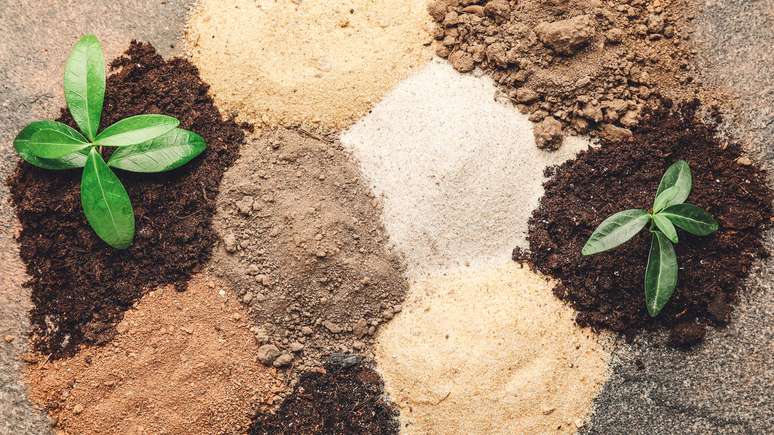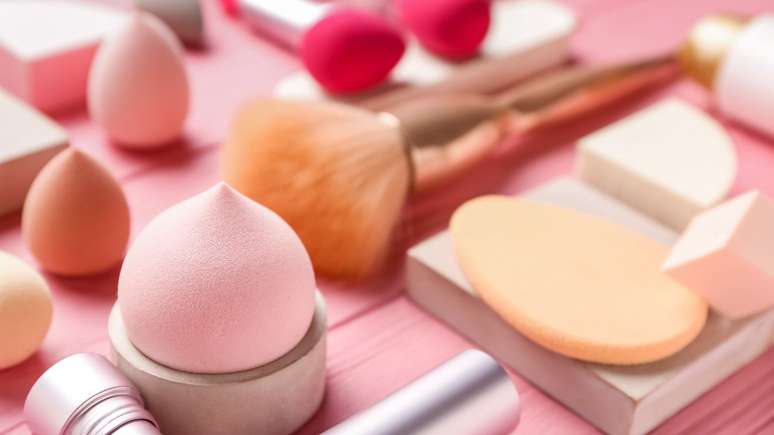In a tradition that crosses the Atlantic with African peoples, herbs come to occupy a place that goes beyond physical relief, because they clean the soul
Node Brazil, Plants are not just for tea. It is prayer, shield and bridge. In a tradition that crosses the Atlantic With the African peoples – finding the knowledge of the blessings of the hinterland and the strength of the forest with the natives – the herbs come to occupy a place that goes beyond physical relief: they will also clean the soul.
Bathrooms and fumes in Umbanda
First of all, the UmbandaWith its ancestral and vibrational wisdom, it is one of the great guardians of this knowledge and its bathrooms, fumes, Love And prayers with herbs are part of the daily life of those who try not only to treat, but download, unlock and transform.
Validation of plants in science
Currently, the Science He is starting to validate, with technical terms, what tradition already knew with the skin: some plants have substances capable of interfering with the physical body. They are active ingredients with anti -inflammatory, digestive, antimicrobial and soothing properties, for example. Others have what many call phytoenergy, a type of thin vibrational field that operates in our energy field, as if each plant was a small channel of vibratory strength of nature. The bath plants to download are not the choices by chance. Everyone has its vibration, its spirit and its power. It is the living nature, which acts wisely in the body and soul. Among the main ones there are:
Plants and their benefits
Ruda (Ruta Graveolens)
Ruda is a small shrub, with green leaves, girls and the very aromatic-it smell is unmistakable and usually causes love or refusal of the first inspiration. Its flowers are yellow and delicate and the plant usually does not exceed a meter in height. Originally from the region of MediterraneanIt adapted well to Brazil and thus became common in the courtyards, in domestic gardens and even in free lots in the South -East and North regions -orientali, where the ground is drier and sunny.
Popular medicine uses rudits for centuries to relieve pain, fight inflammation and facilitate circulation, thanks to Rutina and alkaloids present in their leaves. But it is on an energetic plane, in which it shows its ancestral strength, as it is one of the most powerful herbs to download, envy, evil eye and cut dense spiritual requests. Its aroma is stronger than perfume, as it protects. In Umbanda, it is common in bathrooms and smoke, especially when you want to “close the body” and create a spiritual defense camp. But its use must be conscious, both physically and spiritually, because in excess it can be toxic.
Guinea (Alliacea pedestrian)
Guinea is a wide and dark green plant with a strong and penetrating smell that recalls garlic and sulfur. Its flowers are small, whitish and were born in thin ears that oscillate with the wind. Although most of the people in the big city do not know it, the northern and north regions -eastern they know their strength well.
Growing up in wet and rich soils in organic matters, in its composition it has sulfur compounds with anti -inflammatory, antioxidant and analgesic action. It serves to relieve pain and treat infections, but also acts in the nervous system, being considered calming. In the religion of the African matrix already mentioned, it is respected as a “breakage of the question” – capable of cutting the spells, removing the obsessors and dissolving dense spiritual loads. Its vibration is intense, therefore it is used with caution and respect. In the discharge or in the smoke of bathrooms, Guinea is like a vibrational sword that cleans the energy field and restores the vital force.
Rosemary (Rosmarinus officinalis)
Rosemary is a thin and dark green plant with a surprising aroma reminiscent of freshness and cleaning. Its small bluish or purple flowers attract bees and enchant the delicate contrast with the wood branches. Although originally of the Mediterranean region, Rosemary has perfectly adapted to the Brazilian climate, being easily found in gardens, gardens and courtyards throughout the country, especially in the South -East and South regions.
In medicine, rosemary is used to stimulate circulation, improve digestion and memory, thanks to rosemary acid, cineol and other essential oils that activate the nervous system and fight free radicals. Already in the energy dimension, it is known for having raised the mood, lightening the mind and making the way. In Umbanda and in phytonenergetic practices, Rosemary is called “grass of joy”, capable of renewing energy, removing sadness and strengthening trust. Used in the bathrooms, brings lightness and fresh energy – as if it sweeps emotional dust and illuminated an internal light.
Basil (Ocimum Basilicum)
With green, oval and very aromatic leaves, basil is one of the most loved plants of Brazilian gardens. His small white or lilac flowers are born in delicate curls at the top of the branches. Originally from Tropical Asia, it easily adapted to the ground and the climate of Brazil, being often found in the gardens and pots, especially in the hottest and most humid climatic regions.
From a medicinal point of view, basil has digestive, anti -inflammatory and antimicrobial properties due to the presence of Eugenol and Linalol in their essential oils. Your tea is traditionally used to calm the stomach and relieve pain. But its use goes far beyond cuisine or physical health. In the energy field, for example, it is known to promote harmony, soften tensions and balance emotions. In the bathrooms, the basil acts as a “vibrational peacemaker”, helping to restore calm, affectivity and emotional well -being. It is the ideal grass for the heavy days, when the heart asks for lightness.
Lifting (pleclanthus barbatus)
The revolt is a plant of large, velvety and vibrant green leaves that exudes a fresh and pleasant smell. Its small and purple flowers appear in the ears that further adorn the shrub. Cultivated in Brazil, especially in the North -est and inside the South -est, the revolt prefers hot climates and well -drained soils -usually grows in courtyards, gardens and even around rural houses.
In popular medicine, the revolt is known for its digestive and liver effect, being used as a natural tonic for liver, as well as helping in the gastrointestinal tract. His active ingredients also have a slight soothing action. Already on an energetic level, it is like a dose of spiritual mood. The vibration of the revolt has the power to increase astral, renew the strength and help in times of emotional fatigue or tiredness. It is common to use it in the bathrooms when looking for courage to go on, clarity to make decisions and strength to face the challenges that weigh on their shoulders.
Limone balm (Melissa Officinalis)
The lemon balm has green and soft leaves, with slightly toothed edges and a scent of citrus fruits reminiscent of lemon. It is a plant that grows easily in pots, gardens and courtyard, especially in places of slight climate, as in the south and southern -east of Brazil. Its flowers are small, white or pink and attract bees: a sign that their energy is sweet and welcoming.
Rich in essential oils such as citials and geraniums, the lemon balm acts as a relaxing natural, helping to reduce anxiety, relax the body and improve sleep quality. But your sweetness is not just physical. In the vibrational field, he dissolves emotional tensions and gently cleans the turbulent energies that accumulate in times of stress. It is like a swimming -shaped liquid embrace, ideal for those who feel agitated, insecure or affected by loaded environments. In Umbanda, it is used in the bathrooms of the spiritual Acalanto, especially in children or sensitive people.
Pinhão-Roxo (Jatropha Gossypiifolia)
With large cutlery of dark green purple green, Pinolo Viola is an extraordinary presence plant. Its stem exudes a white latex and its red flowers, small and flashy to sprout throughout the year. It is common to find it in vivid fences, along the road and free lots in the north and north -est of Brazil, where it grows easily even in poor land.
Despite its beauty, the second classified requires care. Its seeds are toxic and should be avoided. However, their adequately used leaves have a purgative, anti -inflammatory and reduced effect, being used in popular medicine to treat infections and eliminate parasites. On a spiritual level, it is one of the strongest herbs for deep cleaning. Its energy is acute, like a blade that breaks negative energy links, makes it crumble for low vibrations and removes unwanted spiritual influences. Therefore, it is used sparingly and always accompanied by other softer herbs. Your bathroom is like a restart ritual.
Plants as a healing tool
The use of plants as a healing tool goes well beyond the physicist. They bring ancestral knowledge, thin forces and active ingredients that act both in the body and in the soul. In Umbanda and Popular Medicine, each sheet is a link between the visible and invisible world, between what science can already demonstrate and what we are still reappinging to hear. Taking a herbal bath is often more than a ritual: it is a dip in the memory of the earth, a meeting with the vibration that supports us. That we know how to use this silent and vibrant power that springs from the leaves.
Source: Terra
Ben Stock is a lifestyle journalist and author at Gossipify. He writes about topics such as health, wellness, travel, food and home decor. He provides practical advice and inspiration to improve well-being, keeps readers up to date with latest lifestyle news and trends, known for his engaging writing style, in-depth analysis and unique perspectives.




-1iukw1rasftya.jpg)




